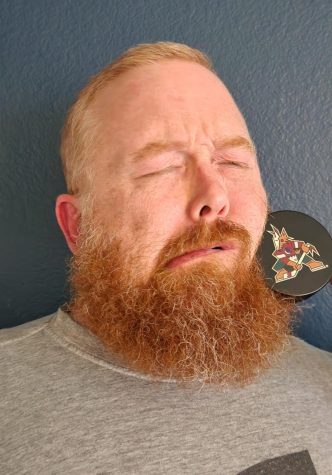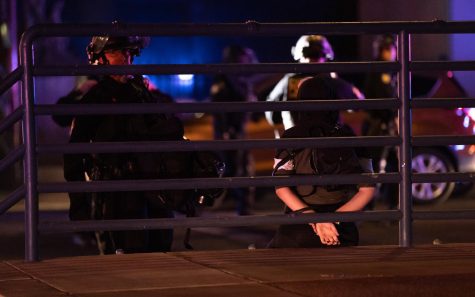A Rush to Justice
“Fantastic Lies” highlights the Duke University lacrosse case and the thirst to be first
Duke lacrosse jerseys on display. The high-profile 2006 case involving three members of the team continues to make waves today.
April 1, 2016
On March 13, ESPN aired its newest installment of the “30 for 30” documentary series, “Fantastic Lies.” The film was about the high profile rape case back in 2006 that dealt with three players of the Duke University lacrosse team and a hired African American stripper.
The case encompassed race, privilege issues, educated vs uneducated, sexism, you name it. Before the case was ever brought to court, before any evidence was given, before any charges were brought forward, many parties including the Durham, North Carolina District Attorney Michael Nifong, national media and many in the Duke administration and student body had already concluded that the accused players of the team were guilty.
From an outside perspective of the casual observer, it seemed that it was certainty that the players were guilty but once all evidence was given and the case was finally brought to court it imploded.
No DNA evidence of any of the players was found on the accuser. Phone, computer, and video evidence showed that the three players accused were not together, and some were not even at the house when the rape occurred. When the case was over the only people with egg on their face were the eager journalists, District Attorney Nifong and those who protested outside the lacrosse house.
In the end the case was dropped and a serious black eye was left on everyone from the accusers to the accused.
This case sadly is no longer unique but it served as first of many cases of serious accusations that do not hold up in court. Examples of other similar cases recently is when Rolling Stone” magazine published a story of a rape that occurred at the University of Virginia at a fraternity party. However as evidence came out that the said party never even happened, supposed witnesses fanatically denied, and the story ended up being pulled.
In 2015 a woman at the University of Columbia who claimed she was a victim of sexual assault started a movement that gained national attention by carrying a mattress around campus. She even had it with her at her graduation ceremony. However as the story continued to unravel it became known that many of the statements she made could not be backed and faltered under scrutiny.
What is scary about all of these instances is the road that we as a society are heading down. A road where the court of public opinion is now our legal systems judge, jury, and executioner. Even the media is at fault where networks like CNN foster a mentality of snap judgments. Many people who were proponents of these cases claim that believing the victim first is more important than letting the case play itself out.
There is no doubt that cases like these are sensitive and serious and our legal system may not be perfect but taking that course of action is wrong. Our current legal system allows those accused a chance to defend themselves. Not allowing the defense to have due process is dangerous as it allows the defendant to be convicted in the court of public opinion rather than in the court of law.
Also, jumping to conclusions to only have them proven wrong does not help anyone and only weakens the cases of those who are actual victims of sexual assault seeking justice. Anyone who thinks that the court of public opinion making the judgments of law is wrong should be alarmed when we started to head down that path back in 2006.
In “Fantastic Lies” there was an overriding sentiment that really stood out to me. It struck me of how easily the District Attorney and the police department could go forward heavily with the case even without any evidence. One of the statements I hear a lot from those for the cases similar to the ones above is, “How would you feel if someone did one of these acts towards you or someone you know? Wouldn’t you want people to listen?” The only response I can give to those people is the same, “How would you feel if you or someone you know were accused of something falsely and no one believed you? Wouldn’t you want people to listen to you?”












